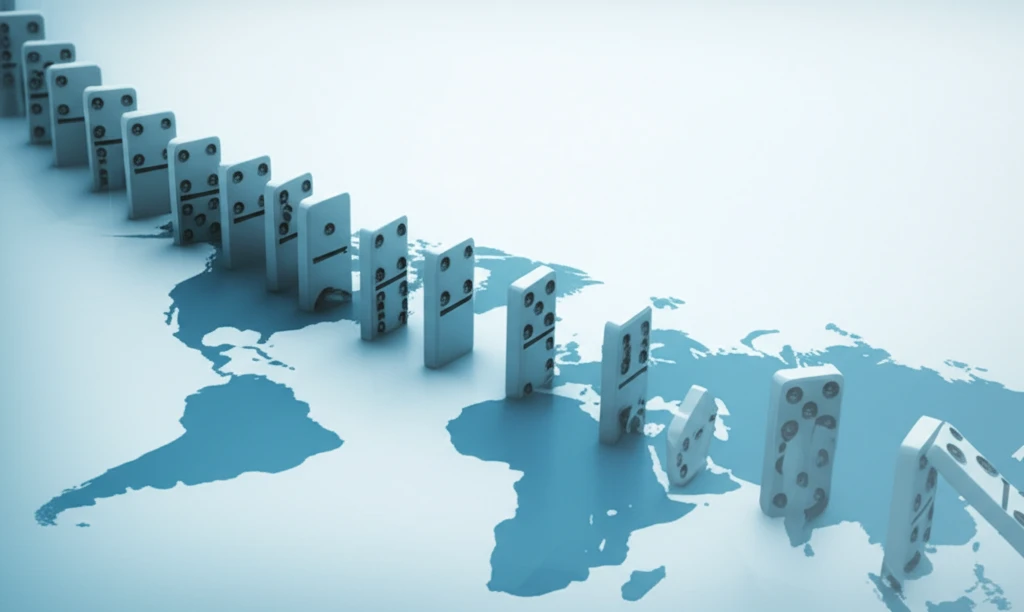
Tariff Wars: Are We Actually Hurting Ourselves?
"New research reveals the hidden dangers of protectionism and how tariffs can backfire spectacularly"
In an increasingly interconnected world, the concept of tariffs has resurfaced as a tool for governments seeking to protect domestic industries, boost employment, and secure economic advantages. However, beneath the surface of these seemingly straightforward measures lies a complex web of economic interactions that can lead to unintended and often detrimental consequences. Recent research sheds light on the often-overlooked 'spillover effects' of tariffs, revealing how these trade barriers can backfire, inflicting greater harm on the tariff-imposing economies than on their intended targets.
The study, "Tariff Barriers and Industrial Spillover Effects," challenges conventional wisdom by demonstrating that tariffs, far from being simple protective measures, can trigger a cascade of indirect impacts through industrial forward and backward linkages. These linkages, which represent the intricate supply chains that crisscross the globe, mean that tariffs in one sector can ripple outwards, affecting numerous other sectors both domestically and internationally. Understanding these spillover effects is crucial for policymakers seeking to make informed decisions about trade policy.
As we delve into the findings of this research, we'll explore how tariffs can ironically undermine the competitiveness of domestic industries, disrupt established trade relationships, and ultimately lead to greater economic losses. This analysis will not only equip you with a deeper understanding of the complexities of global trade but also empower you to critically evaluate the claims and promises made by proponents of protectionist policies.
How Tariffs Trigger Unexpected Chain Reactions

The core argument presented in the research is that tariffs, designed to protect specific sectors, set off a series of indirect consequences that extend far beyond the initial target. These consequences stem from the intricate nature of modern supply chains, where goods and services often cross borders multiple times during the production process. A tariff on imported steel, for example, might initially seem beneficial to domestic steel producers. However, it can increase the cost of manufacturing for industries that rely on steel, such as the automotive or construction sectors.
- Forward Linkages: When a tariff increases the cost of inputs for downstream industries, reducing their competitiveness.
- Backward Linkages: When a tariff reduces demand for intermediate goods, hurting upstream suppliers.
The Big Picture: Rethinking Protectionism in a Globalized World
The implications of this research are clear: tariffs are a far more complex and risky policy tool than often portrayed. In a globalized economy, where supply chains are deeply intertwined, protectionist measures can easily backfire, undermining the competitiveness of domestic industries and harming the overall economy. As policymakers grapple with the challenges of trade imbalances and unfair competition, it is crucial to consider the full range of potential consequences before imposing tariffs. A more nuanced approach, focused on fostering innovation, improving infrastructure, and investing in education, may be more effective in promoting long-term economic prosperity than resorting to protectionist measures.
